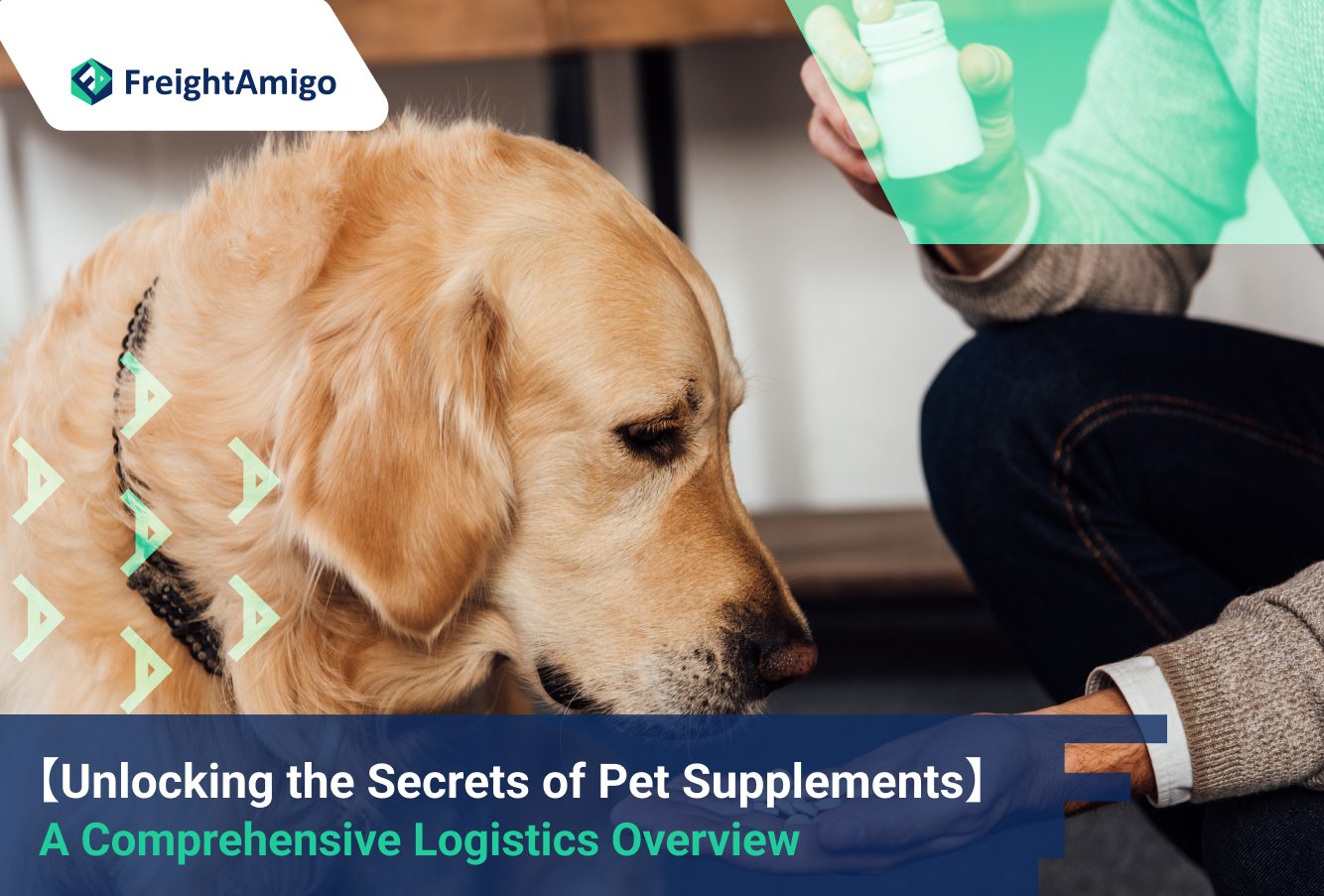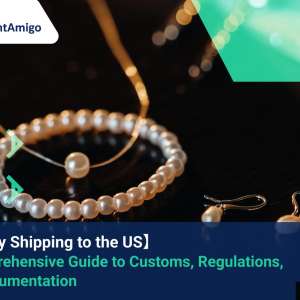Pet supplements have become increasingly popular as pet owners become more aware of their pets’ health. These supplements contain specific nutrients and ingredients that aim to support pets’ overall health and address specific health concerns. They offer a wide range of benefits, from joint health to digestion, skin and coat health to immune system support. FreightAmigo has prepared this logistics overview that explores pet supplements, including their benefits, types, considerations for choosing, quality control, regulations, storage and handling, and challenges and solutions in distribution.
Latest update on 16 February, 2024 by Jacob Leong – Marketing Analyst at FreightAmigo
Want to compare the best Express, Air Freight, Sea Freight, Rail Freight & Trucking rates so as to have better control on cost?
Understanding the Benefits of Pet Supplements
Pet supplements offer a multitude of benefits to our furry friends. They can help address nutritional deficiencies, promote a shiny coat, improve joint mobility, boost immune function, and support overall vitality. For instance, omega-3 fatty acids, commonly found in fish oil supplements, are known to improve skin and coat health, reduce inflammation, and support brain function in pets. Glucosamine and chondroitin supplements are often used to alleviate joint pain and promote joint health in aging pets or those with arthritis.
Moreover, many of it contain antioxidants, vitamins, and minerals that can strengthen the immune system and protect against free radicals. These supplements can be particularly beneficial for pets with compromised immune systems or those recovering from illness. By providing these additional nutrients, it contributes to the overall well-being and longevity of our beloved companions.
Common Types of Pet Supplements
Pet supplements come in various forms, including pills, capsules, liquids, powders, and even treats. Each type of supplement has its advantages and considerations. For example, pills and capsules offer convenience and ease of administration, especially for pet owners who find it challenging to give liquid or powdered supplements to their pets. Liquid supplements, on the other hand, are often preferred for their quick absorption and ease of mixing with food. Powders can be sprinkled onto pet food, making them a versatile option for pets with specific dietary requirements.
The types of supplements available in the market are equally diverse. Some of the most common types include multivitamins, joint support supplements, digestive enzymes, probiotics, skin and coat supplements, and herbal remedies. It is crucial to consult with a veterinarian to determine the specific needs of a pet and select the most appropriate supplement type.
Pet Supplement Regulations and Certifications
Pet supplement regulations vary from country to country. In the United States, they are regulated by the Food and Drug Administration (FDA) under the Federal Food, Drug, and Cosmetic Act (FFDCA). However, it is important to note that pet supplements are categorized as “dietary supplements” and not “drugs.” This means that they do not undergo the same rigorous approval process as pharmaceutical drugs.
Despite the less stringent regulations, pet supplement manufacturers must still comply with labeling requirements and ensure that their products are safe for consumption. The FDA can take action against companies that make false claims or market unsafe products. Therefore, it is crucial for pet owners to choose supplements from reputable manufacturers who prioritize safety, quality, and transparency.
Apart from regulatory compliance, some manufacturers voluntarily seek certifications from independent organizations to further demonstrate their commitment to quality. The NASC seal, mentioned earlier, is one such certification that pet owners can look for when selecting supplements. This seal indicates that the manufacturer has undergone rigorous audits and meets specific quality and safety standards.
The Logistics of Pet Supplement Distribution
The distribution of pet supplements is a complex process that involves multiple stakeholders and careful coordination. From the manufacturer to the retailer, each step in the distribution chain plays a crucial role in ensuring that the supplements reach the pet owners in a timely and efficient manner. The logistics of pet supplement distribution encompass several key activities. These include inventory management, warehousing, order fulfillment, transportation, and customer service. Each activity requires meticulous planning and execution to maintain the quality and integrity of the products during transit.
Inventory management involves accurately tracking the quantities of each supplement and ensuring that there are adequate stocks to meet customer demand. This requires effective communication between the manufacturer and the retailer to ensure timely replenishment of inventory; Warehousing is another critical aspect of pet supplement distribution. The supplements must be stored in appropriate conditions to preserve their quality. Temperature-controlled warehouses may be necessary for certain supplements that are sensitive to heat or cold. Additionally, proper inventory rotation and management practices should be followed to prevent expired or damaged products from being shipped.
Order fulfillment involves picking, packing, and shipping the supplements to the customers. This process requires attention to detail to ensure accurate order fulfillment and appropriate packaging to protect the supplements during transit. Timely shipping and delivery are crucial to meet customer expectations and maintain customer satisfaction.
Challenges and Solutions in Pet Supplement Logistics
The logistics of pet supplement distribution come with their fair share of challenges. These challenges can range from inventory management issues to transportation delays and customer service complications. However, with careful planning and implementation of appropriate solutions, these challenges can be overcome.
One common challenge is managing inventory effectively to meet customer demand. This requires accurate forecasting of sales, understanding seasonal trends, and maintaining a well-organized inventory management system. Implementing inventory management software can streamline this process and provide real-time visibility into stock levels and demand patterns.
Transportation logistics can also pose challenges, especially when it comes to ensuring the supplements are delivered in a timely and safe manner. Selecting reliable transportation partners with experience in handling sensitive products like pet supplements is crucial. Additionally, using temperature-controlled vehicles or packaging materials can help maintain the integrity of the supplements during transit.
The Future of Pet Supplements and Logistics
The pet supplement industry is expanding, and efficient and reliable logistics are becoming increasingly important. To ensure quality control, regulatory compliance, and customer satisfaction, safety, efficacy, and transparency must be prioritised. This way, pet owners can provide their furry companions with the supplements they need to thrive. Pet supplement distribution is set to evolve with technology and a growing focus on pet health. Pet health is a top priority, and online channels are providing new access. Therefore, supplement logistics must meet high standards and expectations. At FreightAmigo, we are dedicated to facilitating this growth by providing tailored solutions that ensure products arrive on time and in good condition. As the pet product market expands, we strive to simplify complicated supply chains through innovative optimization and attentive care at every stage.
There are different options for cargo transportation. If you want to choose the most suitable solution, it is best to have the full support of logistics experts! If you are planning to import / export pet supplements, please go to the FreightAmigo page for inquiries.
Read More:
Navigating the Challenges of Shipping Frozen or Fresh Pet Food
【Pets and Logistics】Unraveling the Global Challenges in Pet Food Supply Chain Management
【Supply Chain in Pet Industry】 Comprehending Key Aspects of Pet Food Shipping
If you have any inquiries on logistics/supply chain, feel free to contact FreightAmigo now:
Chat with us online | Hotline: +852 28121686 | WhatsApp: +852 27467829









































